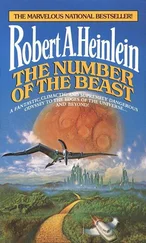Robert Heinlein - Expanded Universe
Здесь есть возможность читать онлайн «Robert Heinlein - Expanded Universe» весь текст электронной книги совершенно бесплатно (целиком полную версию без сокращений). В некоторых случаях можно слушать аудио, скачать через торрент в формате fb2 и присутствует краткое содержание. Жанр: Фантастика и фэнтези, на английском языке. Описание произведения, (предисловие) а так же отзывы посетителей доступны на портале библиотеки ЛибКат.
- Название:Expanded Universe
- Автор:
- Жанр:
- Год:неизвестен
- ISBN:нет данных
- Рейтинг книги:4 / 5. Голосов: 1
-
Избранное:Добавить в избранное
- Отзывы:
-
Ваша оценка:
- 80
- 1
- 2
- 3
- 4
- 5
Expanded Universe: краткое содержание, описание и аннотация
Предлагаем к чтению аннотацию, описание, краткое содержание или предисловие (зависит от того, что написал сам автор книги «Expanded Universe»). Если вы не нашли необходимую информацию о книге — напишите в комментариях, мы постараемся отыскать её.
Expanded Universe — читать онлайн бесплатно полную книгу (весь текст) целиком
Ниже представлен текст книги, разбитый по страницам. Система сохранения места последней прочитанной страницы, позволяет с удобством читать онлайн бесплатно книгу «Expanded Universe», без необходимости каждый раз заново искать на чём Вы остановились. Поставьте закладку, и сможете в любой момент перейти на страницу, на которой закончили чтение.
Интервал:
Закладка:
From such an attitude, with dreadful certainty, comes World War III, the Twenty Minute War, the Atomic War, the War of Final Destruction. The "secret" of the atomic bomb cannot be kept, the experts have told us repeatedly, for the "secret" is simply engineering know - how which can be developed by any industrial nation.
From this fact it can be predicted that any industrial nation, even though small and comparatively weak, will in a few years be able to create the means to destroy the United States at will in one all - out surprise attack. What constitutes a strong power in the Atomic Era? Scientific knowledge, engineering skill, and access to the ores of uranium - no more is needed. Under such circumstances the pretensions of the Big Five to veto powers over the affairs of this planet are preposterous. At the moment there is only the Big One, the United States, through its temporary exclusive possession of the Bomb. Tomorrow - five to ten years - the list might include any of the many nations with the two requirements.
Belgium and Canada have the greatest known deposits of uranium. Both are small but both possess science and skill in abundance. Potentially they are more powerful than any of the so - called Big Five, more powerful than the United States or Russia. Will they stand outside indefinitely, hat in hand, while the "Big Five" determine the fate of the human race? The developments of atomic weapons and of rocketry are analogous to the development of the revolver in individual affairs - it has made the little ones and the big ones all the same size. Some fine day some little nation may decide she is tired of having us around, give us one twenty - minute treatment with atomic rocket bombs, and accept our capitulation.
We have reason to fear such an attack. We have been through one Pearl Harbor; we know that it can happen to us. Our present conduct breeds fear and distrust in the hearts of men all over the globe. No matter how we think of ourselves, no matter how peaceful and good hearted we think ourselves to be, two facts insure that we will be hated by many. We have the Bomb - it is like a loaded revolver pointed at the heads of all men. Oh, we won't pull the trigger! Nevertheless, do you suppose they love us for it?
Our other unforgivable sin is being rich while they are poor. Never mind our rationalizations - they see our wasteful luxury while much of the globe starves. Hungry men do not reason calmly. We are getting ourselves caught in a situation which should lead us to expect attack from any quarter, from whoever first produces atomic weapons and long - distance rockets.
Knowing these things, the professional gentlemen who are charged with the defense of this country, the generals and the admirals and the members of the military and naval affairs committees of both houses, are cudgeling their brains in a frenzied but honest attempt to persuade the rest of the country to follow this course or that, which, in their several opinions, will safeguard the country in any coming debacle.
But there is a tragic sameness to their proposals. With few exceptions, they favor preparedness for the last war. Thusly:
Conscription in peacetime to build up a reserve; Emphasis on aircraft carriers rather than battleships;
Decentralization of cities; An armaments race to keep our head start in atomic weapons; Agreements to "outlaw" atomic weapons; Consolidation of the Army and the Navy; Buying enough war planes each year to insure new development; An active military and foreign affairs intelligence corps; Moving the aircraft industry inland; Placing essential war industry underground.
These are the progressive proposals. (Some still favor infantry and battleships!) In contrast, General Arnold says to expect war in which space ships cruise outside the atmosphere and launch super - high - speed, atomic armed rockets on cities below. Hap Arnold tells his boys to keep their eyes on Buck Rogers. Somebody is wrong - is it Hap Arnold or his more conservative colleagues?
Compulsory military training - France had that, for both wars. The end was Vichy.
Aircraft carriers vs. battleships. Look, pals, the aircraft carrier was the weapon of this war, before Hiroshima. Carriers don't look so good against space ships. Let's build galleons instead; they are cheaper, prettier, and just as useful.
Decentralization of large cities - let's table this one for a moment. There is some sense to it, if carried to its logical conclusion. But not with half measures and not for $250,000,000,000, the sum mentioned by Sumner Spaulding, its prime proponent.
Bigger and better atomic weapons for the United States - this has a reasonable and reassuring sound. We've got the plant and the trained men; let's stay ahead in the race. Dr. Robert Wilson says that atomic bombs a hundred or a thousand times as powerful as the Hiroshima bomb are now in prospect. Teddy Roosevelt advised us to "Speak softly but carry a big stick."
It is a tempting doctrine, but the great - hearted Teddy died long before Hiroshima; his day was the day of the charge up San Juan Hill. A hundred obsolete atomic bombs could destroy the United States - if the enemy struck first. Our super bombs would not save us, unless we were willing to strike first, without declaring war. If two men are locked in a basement, one armed with a 50 - caliber machine gun, the other with an 18th century ball - and - powder pistol, victory goes to the man who shoots first, not to the one with the better weapon. That is the logic of atomics and now is the time to learn it by heart.
Agreements to "outlaw" atomic weapons? Swell! Remember the Kellogg Pact? It "outlawed" war.
Consolidation of the armed forces: A proposition sensible in itself, but disastrously futile unless we realize that all previous military art is obsolete in the atomic age. The best pre - Hiroshima weapons are now no more than the side arms of the occupying military police. Buck Rogers must be the new chief of staff. Otherwise we will find ourselves with the most expensive luxury in the world - a second - best military establishment.
Purchase of military aircraft in quantities to insure new development - we bought sailing ships - of – the line in the 1880's. This makes the same sort of pseudo sense. Airplanes are already obsolete - slow, clumsy, and useless. The V - 2 is credited with a speed of 3600 miles per hour. Here is a simple problem in proportion: The Wright Brothers crate at Kittyhawk bears the same relation to the B - 29 that the V - 2 bears to the rocket ship of the coming war. Complete the equation by visualizing the coming rocket ship. Then stop wasting taxes on airplanes.
An efficient intelligence system - Fine! But no answer in itself. The British intelligence was quite efficient before this war. Mr. Chamberlain's desk was piled high with intelligence reports, reports which showed that Munich need never have happened. This has since been confirmed by high German General Staff officers. But Mr. Chamberlain did not read the reports. Intelligence reports are useful only to the intelligent.
Moving the aircraft industry inland - excellent preparation for World War II. Move an industry which we don't need for World War III inland where it will be safe from the weapons of World War II. While we are about it let's put stockades around them to keep the Indians out. In the meantime our potential enemies will have plenty of time to perfect long - range rockets.
Placing key war industry underground - assembly lines underground are all very well, but blast furnaces and many other things simply won't fit. Whatever digging in we do, be sure we do it so secretly that the enemy will never suspect, lest he drop an earthquake - type atomic bomb somewhere near - by and bury all hands. Let us be certain, too, that he does not introduce a small atomic bomb inside the underground works, disguised as a candy vending machine, a lunch pail, or a fire extinguisher. The age of atomics is a field day for saboteurs; underground works could be colossal death traps.
Читать дальшеИнтервал:
Закладка:
Похожие книги на «Expanded Universe»
Представляем Вашему вниманию похожие книги на «Expanded Universe» списком для выбора. Мы отобрали схожую по названию и смыслу литературу в надежде предоставить читателям больше вариантов отыскать новые, интересные, ещё непрочитанные произведения.
Обсуждение, отзывы о книге «Expanded Universe» и просто собственные мнения читателей. Оставьте ваши комментарии, напишите, что Вы думаете о произведении, его смысле или главных героях. Укажите что конкретно понравилось, а что нет, и почему Вы так считаете.











